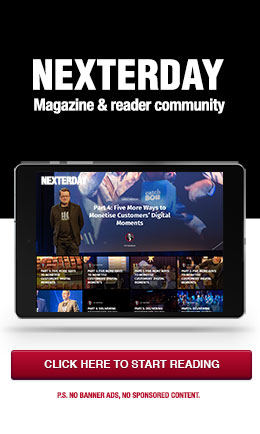Service Orchestration Overhaul Helps Mobily Optimise for Mobile’s Future
Posted: April 28th, 2015 | Author: Steve Hateley | Filed under: Compelling Cases | Tags: Analysys Mason, service orchestration | No Comments »Like their counterparts around the world, Saudi Arabian consumers are hungry for mobile services. The most recent available government data showed that the country had a mobile subscription penetration rate of 176.9 percent in 2013, and that figure is only expected to grow.
Mobily, for one, now stands to benefit from this mobile service appetite after improving its service architecture. As we described in our new book, Operation Nexterday, Mobily successfully addressed several back-office inefficiencies, enabling the operator to capitalise on the demand for mobile services.
The company embarked on an ambitious plan in 2011 to re-engineer its entire service architecture for better flexibility, improved cost efficiency and faster time-to-market.
Complex Architecture Bogged Down Service Potential
Mobily has enjoyed steady growth in its customer base since launching in 2005, boasting 18.2 million mobile subscribers in its 2013 annual report. As we cover in Operation Nexterday, today’s consumer wants a multi-channel, automated, personalised, instantaneous digital buying experience. Generation Cloud wants services that move at their speed, and acknowledging this reality, Mobily decided to evaluate its back-office infrastructure to ensure it was well-positioned to serve these customers.
Mobily historically had developed its operation and business support systems (OSS / BSS) internally. In-house departments often developed applications independently of other parts of the company, which could sometimes result in out-of-sync design principals, inconsistent process terminology and redundant applications. This could complicate new products or services launches, which encouraged Mobily to seek out a simplified service architecture.
A Game Plan and Platform for Success
Mobily committed to a service overhaul in 2011. The operator relied on TM Forum standards as a framework to document its existing process flows, gaps and redundancies, which made it easier to develop a strategy to address those weaknesses.
That was followed by a switch to a new Comptel service orchestration platform, which offered a consolidated, simplified and automated operational back-end. After the revamp, Mobily was able to reduce operational and support costs and ensure faster time-to-market. Execution timelines for new product launches were reduced from two days to 30 minutes, and fulfilment order processing shrank from 15 minutes to 10 seconds.
The initiative unlocked $95 million in direct operational savings, but most crucially, it allowed Mobily to establish a more flexible foundation for service development. Today, Mobily is in a much better position to address the needs of Generation Cloud and profit from a dynamic digital buying experience.
Download this case study from Analysys Mason to learn how Mobily re-engineered its service architecture with Comptel OSS Solutions.






Leave a Reply